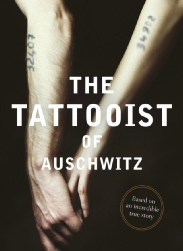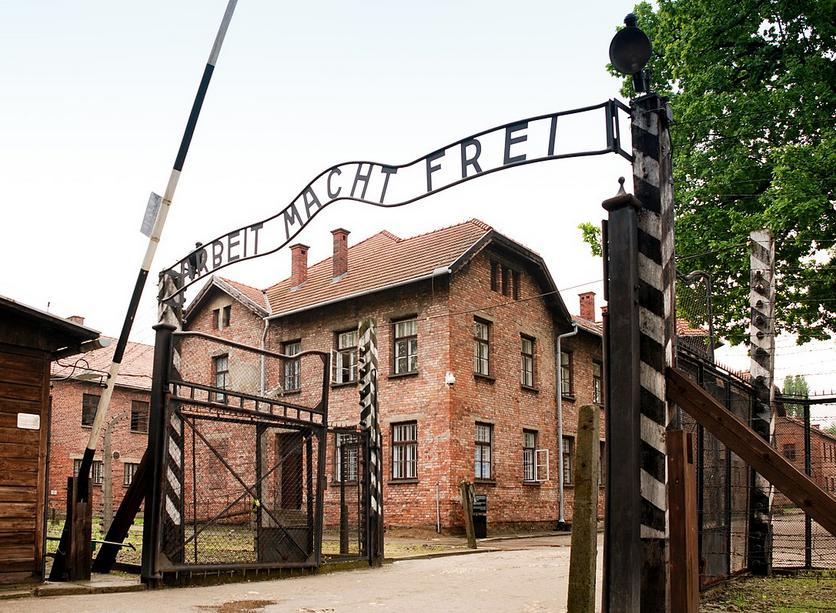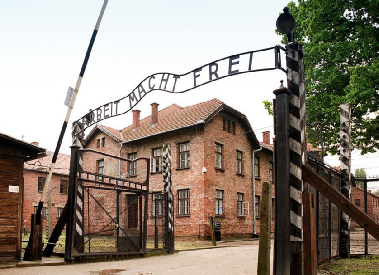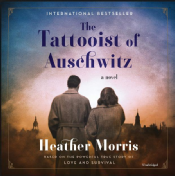Seo agus Siud April 2019

I have just finished reading this amazing book about two young people, who not only fell in love in the killing camps of AUSCHWITZ -
One of these people in line to be numbered, was the 18 year old new arrival, Gita, with whom Lale fell hopelessly in love, looking into her sad eyes, with her shaven head, and dressed in rags, trembling with fear, as he tattooed the number 34902 onto her left arm. The story is based on the relationship between two ordinary people, living in an extra ordinary time, deprived of their freedom, their dignity, their families, and even their names replaced by numbers, and how they survived the horrors of Auschwitz. Their story is one of beauty, hope, courage, love and survival against the odds. A story about the love between two young people destined to be together eventually, for more than 60 years


Much of the novel is a diarised summation of Lale’s thoughts and feelings about Gita, and how he manoeuvres around the routine of the camp, just to see her, or be with her. He manages to overcome many of the hurdles we associate with concentration camps, constant observation, shooting at will, torture without explanation, fear and intimidation. The infamous, and intimidating Josef Mengele, was his bête noir, darkening his every day, and his every move. Inspite of fear, he shares his quarters with the Roma captives prior to their liquidation in the gas chambers. He also interacts with the newer Hungarian arrivals, who were systematically murdered from 1944, and represented the largest single nationality killed in Auschwitz.
Much of what Lale describes about the camp, seems at times to be far-
The Author doesn’t unravel the moral ambiguities of Lale’s position, the greyest of lines between doing what he needed to do to survive, and facilitating even in the tiniest way, the evil and insidious functioning of the camps…As the Tattooist, raising his bag of tools and calling out “politische abteilung" (Political Department) when stopped, he was officially part of the political arm of the SS, and so explains his apparent freedom of movement. In his later days he said to the author “I can only hope that one day I am not judged as a perpetrator or a collaborator”. I think a better writer would have made more of this complexity by examining themes of “forced collaboration” and “survivors guilt”?

I found the ending somewhat disappointing and unfinished ….Did he have a choice ? Of course he did, he could have said no, or he could have taken his chances continuing to construct buildings, but he didn’t. Did he feel guilt? Of course he did. It is called Survivor Guilt. Every friend of his that the author met, had experienced this guilt after they were freed from time in a concentration camp. How can one not, when you witness not only the death of family and friends, but of humanity itself, and you end up walking away, carrying the burden of having survived.
Very few writers can adequately convey the scale of suffering, deprivation, course cruelty, murder and loss in the Holocaust, or what it meant to those who survived. Perhaps the most articulate Auschwitz survivor and author Primo Levi, also warned against searching for redemptive human qualities in the quagmire of Hell, because survival is often feral and instinctive , not heroic. While one may rejoice that love flourished even in the darkest pit of humanity, it’s ok to feel uneasy at the apparent glossing over of the concentration camps’ unremitting misery with sweet romance. Even their eventual extraordinary reunion at the end of the war is disappointing, and it feels somewhat detached and stagnant. Yes, a book worth reading all the same…. Méabh Ní Uallacháin
A Book Review
Page 3